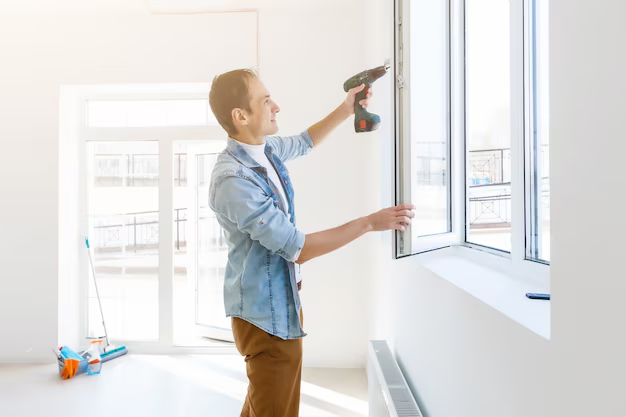What Does Replacing Home Windows Really Cost?
When it comes to upgrading your home, few projects offer as much impact as replacing old windows. Not only can new windows enhance the aesthetic appeal, but they also boost energy efficiency, reduce noise, and potentially increase your home’s market value. But how much does it really cost to replace home windows? Let's dive into this topic to provide you with a comprehensive understanding that prepares you for the investment.
Why Replace Your Home Windows?
Before we delve into costs, let's understand why replacing windows might be necessary. Over time, windows can become less efficient, leading to higher energy bills and less comfort. Here’s why you might consider new ones:
- Energy Efficiency: Modern windows can significantly reduce heating and cooling costs by providing better insulation.
- Aesthetic Appeal: New window designs can transform the look of your home, boosting curb appeal.
- Noise Reduction: High-quality windows can help insulate your home from outside noise.
- Increased Home Value: Upgraded windows are an attractive feature for potential homebuyers.
Key Factors Affecting the Cost of Window Replacement
1. Window Type and Material
The type of windows you choose can significantly influence costs. Here are some common types:
- Single-hung windows: These are generally the most affordable.
- Double-hung windows: A bit pricier, but with added versatility and easier maintenance.
- Casement windows: Usually more energy-efficient but come at a higher cost.
- Bay windows: These add charm and space but are among the most expensive to install.
Material Choices:
- Vinyl: Cost-effective and energy-efficient.
- Wood: Provides excellent aesthetics but requires more maintenance and a higher budget.
- Aluminum: Durable, though less efficient in insulation compared to other materials.
- Fiberglass: Offers durability and efficiency but at a higher price.
2. Window Size and Quantity
The size and number of windows will understandably impact the overall cost. Larger or more windows mean more material, labor, and time.
3. Location and Accessibility
If you’re replacing windows on a higher floor or those that are hard to access, expect to pay slightly more for the added labor and complexity.
4. Additional Features
Consider features like triple glazing, low-E coatings for better insulation, or custom designs, all of which can increase costs.
Average Cost Estimation
To give you a baseline, here’s a general idea of what you might expect:
- Budget range for a typical window replacement: $300 to $1,000 per window, including installation.
- Premium choice: Could cost $1,000 to $3,500 per window, especially for custom or energy-efficient options.
Quick Reference Table:
| Window Type | Material | Cost (Per Window) |
|---|---|---|
| Single-Hung | Vinyl/Wood | $300 - $600 |
| Double-Hung | Vinyl/Wood | $400 - $1,200 |
| Bay | Wood | $1,500 - $3,500 |
| Casement | Fiberglass | $500 - $1,500 |
Installation: DIY or Professional Help?
DIY Installation
Pros:
- Cost-Saving: You save on labor costs.
- Control: Full control over the project pace and process.
Cons:
- Complexity: It requires skill and tools.
- Risk of Damage: Improper installation can void warranties or lead to additional costs.
Professional Installation
Pros:
- Expertise: Professional installers ensure quality work.
- Time-Efficient: They handle the project quickly and efficiently.
Cons:
- Higher Costs: Labor charges are added on top of material costs.
Saving Money on Window Replacement
Here are some practical tips to keep costs down while still getting quality windows:
- Bulk Discounts: Replacing multiple windows at once may earn you a discount.
- Off-Season Installation: Booking the service during less busy times can reduce costs.
- Research and Compare: Get multiple quotes and compare services.
- Energy-Efficient Options: They may cost more upfront but provide savings in the long run through lower energy bills.
Financing and Incentives
Financing Options
If the upfront cost seems daunting, consider the following financing methods:
- Home Equity Loan: Use the equity in your home for financing.
- Personal Loan: Quick and doesn’t require using your home as collateral.
- Credit Card: Useful for smaller projects or when you can pay off quickly to avoid high-interest costs.
Incentives and Rebates
Check for any local or federal incentives for energy-efficient installations, which can significantly reduce costs.
Ensuring Longevity and Value
To make the most of your investment, here are some tips to ensure longevity:
- Routine Maintenance: Regular cleaning and maintenance can prolong life.
- Quality Over Price: Opting for higher quality might be more beneficial in the long run.
- Warranty Considerations: Review all warranties on both product and installation to protect your investment.
A Summary of Key Considerations 📝
- Choose Your Material Wisely: Balance durability, aesthetics, and cost.
- Professional Installation vs. DIY: Weigh the pros and cons based on skill level.
- Plan Financing Smartly: Look for financing and rebates to reduce costs.
- Prioritize Energy-Efficiency: Aim for long-term savings through efficient windows.
- Get Multiple Quotes: Ensure you compare to get the best deal!
Replacing your home windows is a significant investment, but one that can pay off in numerous ways. By considering the options and factors discussed, you can make an informed decision that suits your needs and budget. Whether you're motivated by improving your home's look, boosting its efficiency, or increasing its value, new windows can be a smart move for any homeowner.

